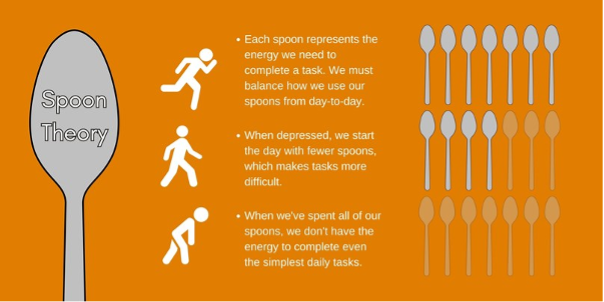The Spoon Theory is a metaphor that is often used to explain and describe the limited amount of energy and resources that people with chronic illnesses or disabilities have to manage their daily lives. It was coined by Christine Miserandino, who has lupus, to help her friend understand what it’s like to live with a chronic condition.
Here’s how to explain and use the Spoon Theory:
- Begin with a visual aid: You can use actual spoons, or simply use the concept of “spoons” as a way to quantify the amount of energy or resources a person has in a given day.
- Explain the concept: Start by telling the person you’re explaining it to that everyone has a different amount of “spoons” available to them each day. Spoons represent the physical and emotional energy needed to perform various tasks and activities.
- Discuss the daily allocation: Explain that people with chronic illnesses or disabilities often have fewer spoons than those without these conditions. On a typical day, someone without such a condition might have an abundance of spoons to use for various activities like getting out of bed, showering, working, socializing, and more. In contrast, someone with a chronic condition might start their day with a significantly limited number of spoons.
- Demonstrate decision-making: As you explain, physically remove spoons from the table one by one to represent the expenditure of energy. For example, getting out of bed might cost one spoon, showering might cost two, preparing a meal might cost three, and so on. The person with the chronic condition must make choices about how to allocate their limited spoons wisely.
- Show the consequences: Explain that if they run out of spoons (energy) too early in the day, they may not have enough left to complete necessary tasks or engage in enjoyable activities. This can lead to “spoon deficit” or “spoon depletion,” which can result in exhaustion, pain, or other symptoms associated with their condition.
- Emphasize the need for self-care: Stress the importance of managing their limited spoons and making choices that prioritize their well-being. Encourage them to pace themselves, take breaks, and practice self-care to conserve spoons and prevent “burnout.”

